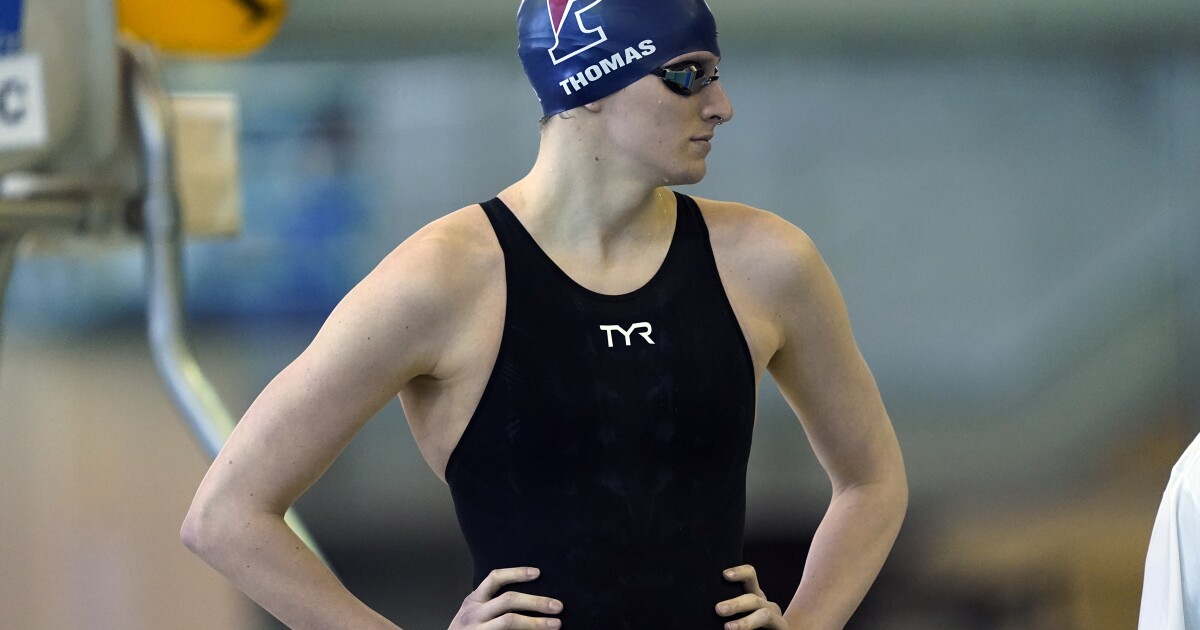Ban on transgender swimmers may affect other sports

The ban announced this week on the participation of transgender women in international swimming and rugby competitions opened the door for athletics to do the same and sparked a wave of changes in Olympic sports policies.
The announcement on Sunday by FINA, swimming’s governing body, immediately sparked an outpouring of support from World Athletics president Sebastian Coe.
Koe, who was in Hungary for the world championships, said the FINA decision was in the best interests of swimming. He announced that the same global athletics watchdog, the athletics watchdog, would review its policies on transgender and intersex athletes by the end of the year.
“If we ever get caught in a corner where we have to decide between fairness and inclusion, I will always be on the side of fairness,” Coe said.
Experts saw this as an indication that world athletics officials could use the FINA precedent to prevent all transgender and intersex athletes from participating in women’s competitions. Intersex refers to clinical terms that identify differences in sexual development.
The new FINA policy prohibits any transgender woman from participating in elite competitions, if the athlete does not begin her medical treatment to suppress testosterone production before puberty or around age 12, whichever is later.
The USA Swimming Federation, the sport’s federation in the United States, implemented its own policy earlier this year, with the idea that the FINA would later be equivalent. But he warned this week that he will need time to determine how FINA policy will affect his standings.
Should athletics adopt a rule similar to that set by the International Football Association Board (FINA), Caster Semenya, a South African athlete with differences in her sexual development, will remain out of the running in her 800m specialty.
Also missing will be Namibian 200m silver medalist Christine Mboma, an athlete with differences in sexual development who will compete for the title at next month’s world championships in Oregon. Currently, the rules of world athletics governing these athletes do not apply to the 200m.
“By the end of this year, I think (world athletics) will have announced a very similar policy to swimming,” said Ross Tucker, World Rugby Science and Research Adviser. “And they will say that if a person has reached puberty and has gained the advantages associated with testosterone, he cannot compete in women’s sports.”
The International Rugby League has also banned transgender women from women’s matches until further studies are conducted to allow the sport’s organizers to come up with a coherent inclusion policy.
The International Cycling Union last week updated its rules for eligible transgender athletes. Extend the period during which transgender athletes on women’s teams must lower their testosterone level to two years instead of one.
In football, FIFA indicated that it is “currently reviewing its own gender eligibility regulations, in consultation with experts”.
Each sport determines the position individually. The IOC’s framework, which was unveiled in November and took effect in March, put each sport responsible for its own rules for testosterone levels.
This framework replaced IOC policy that allowed transgender women to compete in the Olympics with other women if they had been on hormone replacement therapy for at least 12 months.
The new non-binding parameter recommends that testosterone levels do not determine whether someone qualifies to compete, a position that World Athletics has not taken.
Tucker said he hopes the “big four or five” international sports federations will follow in the FEM’s footsteps, but not all – in part because many organizations are smaller and lack teams of scientists and lawyers to conduct the research they need. Require more detailed policies.
FINA has commissioned three groups to work on its policy: athletes, scientists/doctors and lawyers/human rights experts.
Decisions of FINA and other organizations will be appealed in court or at the Court of Arbitration for Sport (CAS). This means that unions that adopt a rule will need scientific studies and legal foundations to keep it in place.
“What I did swimming wasn’t easy, and it certainly wasn’t cheap either,” Tucker said.
Koe said Vina “spent $1 million in legal fees.”
“We’re not FIFA, and we’re not poor either, but other sports are really afraid that if they go down that path, they’re going to go bankrupt trying to defend him.”
Competitors at the world swimming championships in Hungary this week avoided delving into the new transgender policy.
“I think the question is, ‘If you’re a woman and you’re competing with someone else, how do you feel about that?’ “It’s about fairness in sport,” said Australian Mosha Johnson, who finished fourth in the 1,500 metres.
___
Authors Ciaran Fahey and Graham Dunbar of the Associated Press contributed to this report.

“Reader. Beer practitioner. Web expert. Subtly charming travel geek. Friendly music specialist.”











